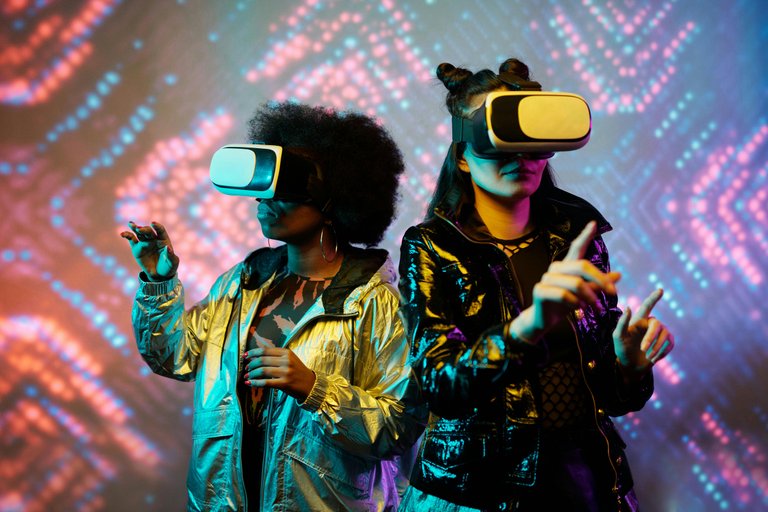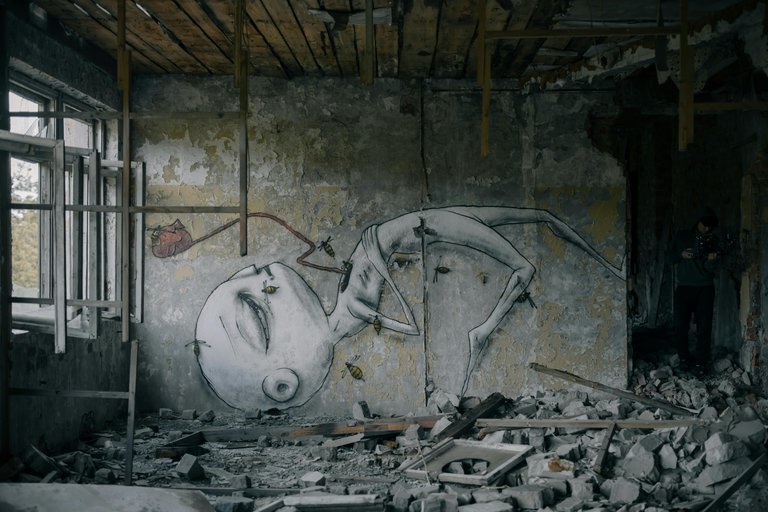The Merging of Realities
We live in a mind blowing era. On the cusp of major transformations that will fundamentally change our perception of the nature of reality. For me, this mind blowing-ness stems from the merging or converging of opposites or different aspects together.
A well known example is how the gap between the physical and digital world is gradually becoming smaller or non-existent.
This blurs the line between concepts and structures, by which they're no longer separate but superimposed and can only be understood by viewing this concept or structure from different povs or multidimensionally.
We experience reality through our senses and make sense of it through our mind. Our mind, however, can act as a filtering mechanism, understanding only a part(s) of the whole.
This could be the reason why there are different point of views(pov) of reality, each focusing on a certain part of the whole. The interesting thing is that none of the povs are absolutely wrong or right.
Blurring the Lines of Perception
Now, hyper reality as a concept, was popularized by the French philosopher Jean Baudrillard in his book "Simulacra and Simulation" published in 1981.
The author argued that in modern society, our experiences are increasingly mediated by simulations or representations, to the point where it becomes difficult to distinguish between what is real and what is not.
In simpler terms, hyper reality is a state of experience where the line between reality and simulation is blurred or even nonexistent.
In certain instances, a simulation can feel and seem more real than reality itself, as is the case with certain modern life experiences. I think certain true story history based movies(e.g Dunkirk) elicit that feeling, because the event happened in the past but when replicated in the present, it feels much more real than the actual event itself.
video games are gradually reaching there too and when virtual reality comes of age, then the last line between reality and simulation may start to fade away.
This kind of puts a different light on the theory of simulation, which is about human kind living in a simulation. Perhaps, we're simultaneously living in both reality and a simulation but we're so engrossed in the simulation that we can't see reality itself or mistook the simulation for reality.
Fundamentally, a simulation can't exist without reality, since the former is an imitation and modification of the latter. Reality is the foundation and a simulation is a structure built on top of it.
So, hyper reality is basically a simulation of reality that is more real than reality itself. The implications from a mental and emotional standpoint can be immense.
Escapism and the Rise of Critical Thinking
When our ability to distinguish between reality and simulation becomes muddled, then a sense of disorientation and confusion will arise, where we struggle to differentiate between our own thoughts, feelings, and experiences, and those created or manipulated by a simulation.
We may begin to question the genuineness of our own experiences and identities, which could foster feelings of alienation and a sense of detachment from the real world.
Escapism comes into play when hyper reality provides a convincing escape from the challenges of the real world, offering a seemingly perfect alternative reality.
However, this escapism over time becomes addictive, leading individuals to withdraw from real-world relationships and responsibilities, neglecting important aspects of their lives in the process.
Of course, these are already happening to a certain degree. In a way, we're already living in a hyper real world.
The good news is this creates a heightened awareness of the constructed nature of reality. Which can encourage critical thinking and questioning of the information and experiences we encounter, prompting us to be more discerning participants of this new world.
Thanks for reading!! Share your thoughts below on the comments.
Posted Using InLeo Alpha

